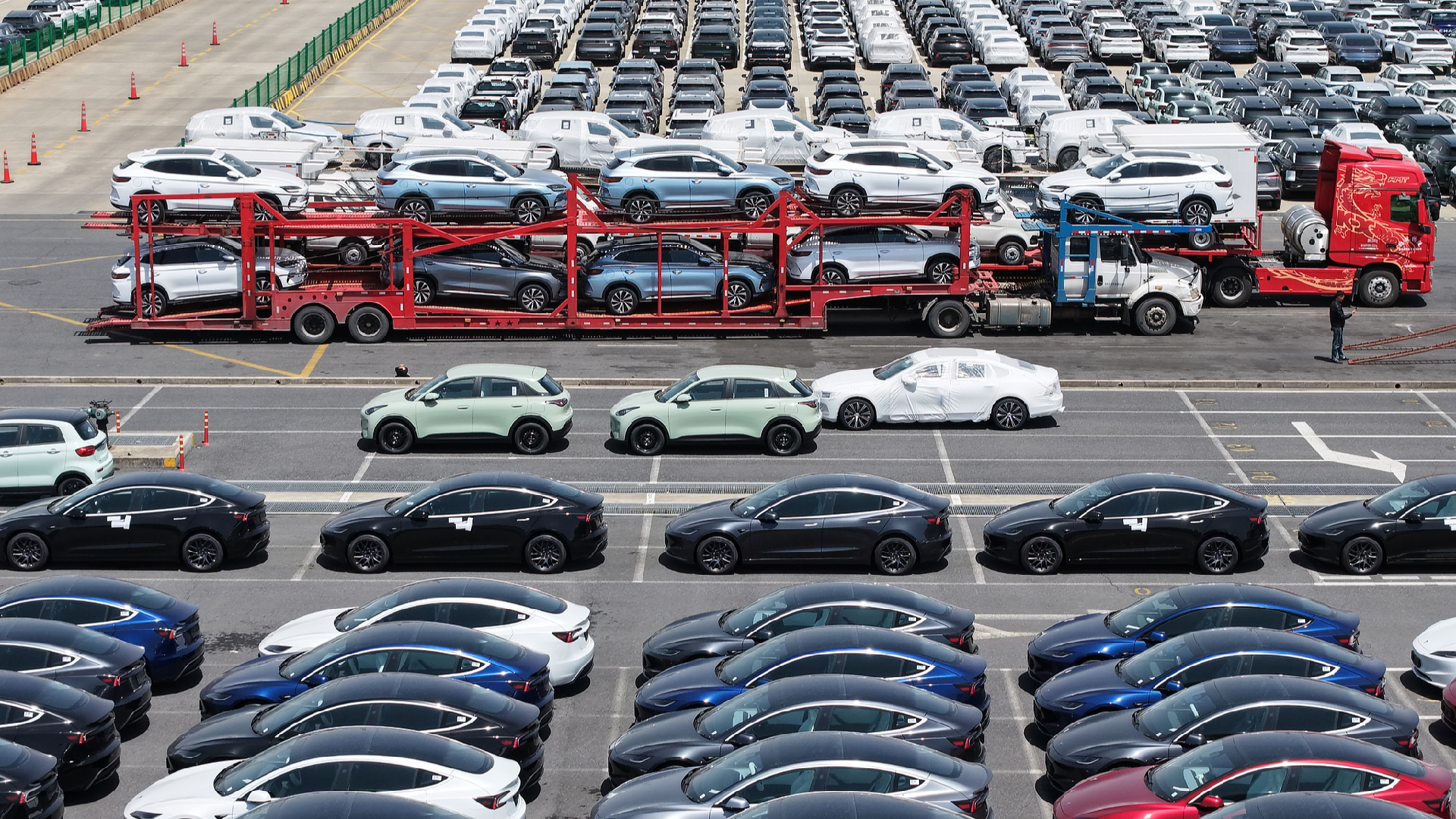China's Stimulus Policy Blueprint Exhibits "Passion, Patience & Perseverance"
China's recent economic policy shift can be encapsulated by three key concepts: passion, patience, and perseverance.

Recently, China's State Council introduced an ambitious stimulus package aimed at revitalizing the nation’s faltering economy. In light of deteriorating industrial production, declining global demand, and increasing domestic challenges, the package underscores Beijing's commitment to forging a sustainable and resilient economic future.
On October 12, the Ministry of Finance, along with the National Development and Reform Commission, which held a press conference on October 8, revealed a series of measures crafted to stabilize the economy. These initiatives address immediate economic pressures as well as long-term structural reforms, showcasing a strategic approach that understands the complexities of the recovery process.
This policy adjustment can be interpreted through three key themes: passion, patience, and perseverance — each vital for grasping China’s evolving economic approach.
'Passion' for high-quality growth
The centerpiece of the new policy framework emphasizes the shift towards high-quality, sustainable economic growth.
A pivotal aspect of this transformation involves boosting domestic consumption and revitalizing the private sector, marking a departure from previous reliance on state-led, investment-heavy strategies.
With a clear acknowledgment that consumption must assume a more significant role in driving economic progress, Beijing is prioritizing demand-side reforms aimed at generating sustained momentum. One of the flagship initiatives is the "two new" program, which promotes extensive equipment upgrades and "old-for-new" replacement schemes, benefitting items such as automobiles and household appliances.
Early signs indicate these policies are taking effect: car sales are anticipated to surge by 10 percent in September, driven by government incentives aimed at encouraging consumers to upgrade their vehicles. Similarly, home appliance sales, which had previously stagnated, are also recovering, supported by targeted subsidies designed to stimulate household spending.
In addition to boosting consumption, the government is heavily supporting private businesses, especially small and medium-sized enterprises (SMEs). These enterprises, essential for long-term economic health, are receiving assistance through policies that ease regulatory constraints and enhance access to financing. The introduction of low-interest loans and adaptable regulatory frameworks helps SMEs tackle current challenges and encourages their growth. This emphasis on the private sector reflects Beijing's acknowledgment of the critical role private enterprise will play in driving innovation, generating employment, and ensuring sustainable growth.
The government is also increasing support for private investment in infrastructure development via public-private partnerships. By leveraging over 3.4 trillion yuan in private capital across sectors such as transportation and energy, China aims to enhance infrastructure projects without straining public finances while emphasizing the importance of private capital in the recovery process.
'Patience' in structural adjustments
While pursuing economic growth, China is calling for patience regarding the necessary structural reforms. The adjustments required for this new economic model are not immediate solutions; they will require time to yield significant results. The stimulus package is designed not only to address pressing economic challenges but also to lay the groundwork for comprehensive, long-term transformation.
Energy restructuring exemplifies this need for patience. China’s efforts to reduce reliance on fossil fuels and improve energy efficiency are ambitious yet will take time to produce measurable impacts. Likewise, the government's investments in urbanization and infrastructure, bolstered by over 700 billion yuan in central budget funding, are long-term initiatives. These investments are focused on improving urban infrastructure, including upgrades to underground pipeline systems, and expanding high-speed rail and public transportation networks. Such actions align with the government’s broader strategy of stimulating domestic demand, especially as global markets exhibit signs of weakening.
This transition from a growth model steeped in heavy industry to one centered on innovation and sustainability necessitates careful management. The government is taking steps to stabilize the real estate sector, a vital driver of previous economic growth.
Measures aimed at lowering mortgage rates and relaxing property purchase restrictions illustrate the delicate balance between avoiding a severe downturn in the housing market and transitioning the economy toward a more diversified and sustainable foundation.
'Perseverance' against economic headwinds
China's policymakers are cognizant of the challenges that lie ahead. Perseverance will be vital in navigating both domestic and international barriers.
The global economic landscape is riddled with uncertainties; the International Monetary Fund predicts a slowdown in global growth to just 3.2 percent in 2024, which poses significant risks for China’s export-oriented industries.
Despite these challenges, China is moving forward with its industrial and technological advancements, which are viewed as key drivers of future growth.
The government is actively promoting high-tech manufacturing and energy security, ensuring priority for key national projects through special exemptions on energy consumption.
Finance Minister Lan Fo’an highlighted on October 12 that China remains committed to issuing long-term bonds, including the recently announced issuance of 1 trillion yuan in ultra-long-term special bonds to finance major national projects that will facilitate this transition.
Domestically, the real estate sector, which has long been a cornerstone of China’s rapid economic growth, continues to grapple with serious issues, including dwindling demand and rising defaults. In response, the government has implemented various policies to stabilize the sector, which encompass lowering mortgage rates and easing purchase restrictions. These initiatives aim to prevent further decline in the housing market while maintaining a focus on long-term stability.
Furthermore, China is addressing the critical issue of local government debt, a significant element of the national fiscal situation.
The central government has allocated substantial resources to assist local authorities in managing their debt, primarily through new bond issuances intended to refinance existing liabilities. This initiative, coupled with targeted fiscal measures, demonstrates a strong commitment to ensuring financial stability at both the national and local levels.
Consequently, China's most recent stimulus package reflects a measured balance of ambition and pragmatism.
The leadership's enthusiasm for high-quality growth, centered on domestic consumption and private enterprise, is evident.
However, this enthusiasm is moderated by an understanding that structural reforms necessitate time, calling for patience from both policymakers and the public. In confronting both global and domestic challenges, perseverance will be essential as China tackles its economic hurdles and aims to sustain its growth trajectory.
The path ahead may not be without obstacles, but the emphasis on long-term sustainability and resilience suggests that China’s economic strategy is crafted for durability. The success of these policies in achieving intended outcomes will ultimately depend on whether Beijing can reconcile short-term necessities with long-term ambitions while nurturing the key elements of passion, patience, and perseverance.
Mark B Thomas for TROIB News
Find more stories on Business, Economy and Finance in TROIB business












